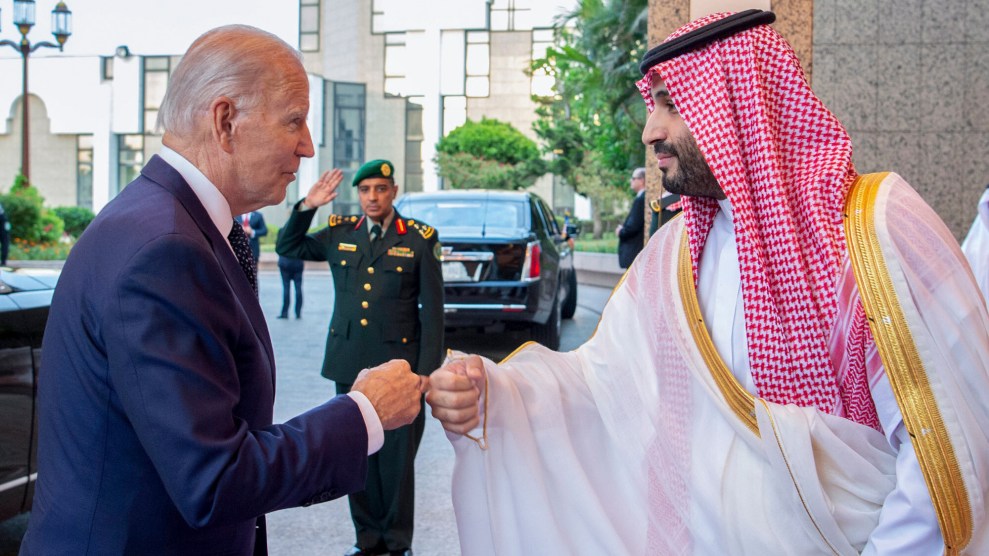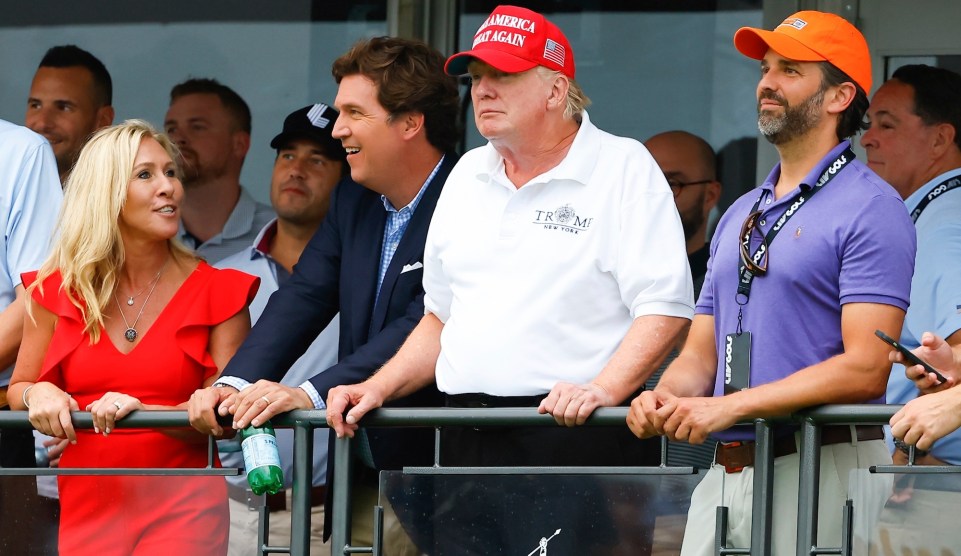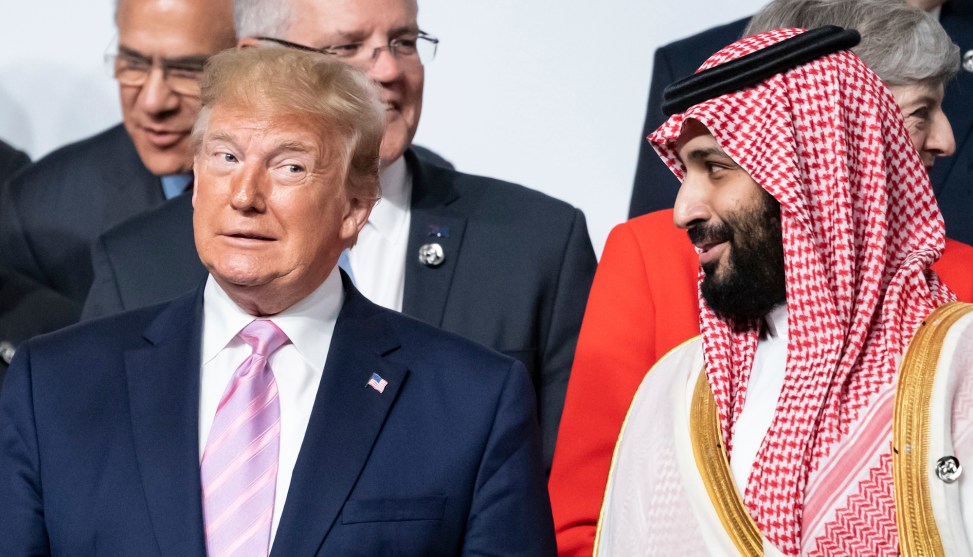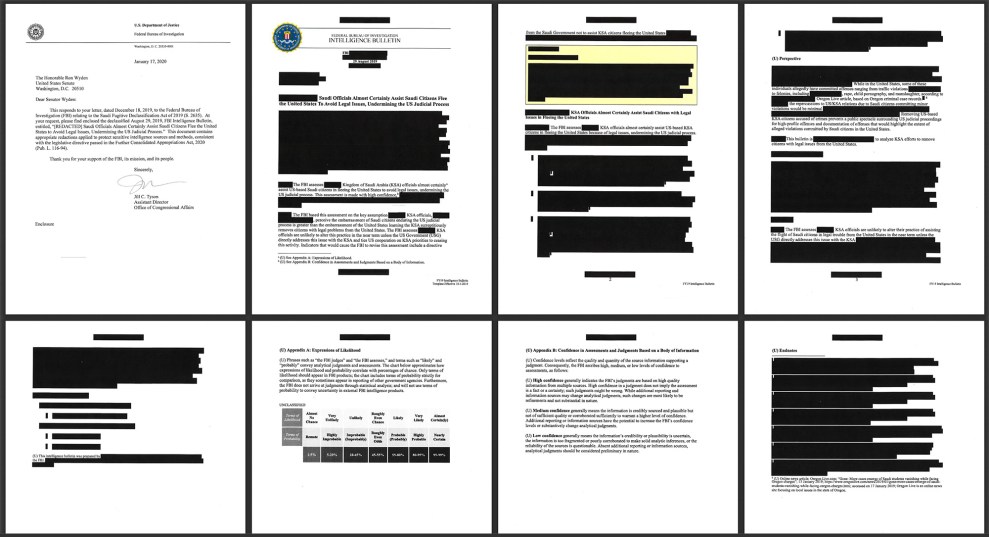
Bandar Aljaloud/Saudi Royal Palace/AP
The easiest way to understand what LIV Golf wanted to be was first to look at what it actually was. LIV, which was founded in 2021 with funding from Saudi Arabia’s Public Investment Fund (PIF), pitched itself as “Golf but louder.” Golfers competed not just individually, but as part of 12 different teams, with names such as Hyflyers, Fireballs, Crushers, and Torque. Music blared over the sound system during tournaments.
“Golf but more like an energy drink” was a concept so evidently bad that LIV’s ambition had to be something else: Saudi Arabia did not want to disrupt the PGA; it wanted the PGA. LIV spent huge amounts of money to lure golfers away from the Tour. (Tiger Woods declined a reported $800 million offer.) It courted Republican politicians, hired the usual hacks and choke artists, and took the PGA to court over its anti-competitive practices. On Tuesday, the two parties announced a stunning settlement: LIV and the PGA are no longer fighting, they’re merging. The new joint venture’s chairman will be Yasir Al-Rumayyan—a governor of the Saudi sovereign wealth fund and chairman of the Saudi state oil company, Aramco.
As my colleague Russ Choma notes, this development is good news for former President Donald Trump, who took huge paydays from LIV to host tournaments at his country clubs after the PGA Tour stopped holding events at Trump courses. It’s a major victory for the masses who clamored for louder golf. But the real winner here is the man who chairs Saudi Arabia’s sovereign wealth fund: the country’s de facto ruler, Mohammed bin Salman.
MBS is not a very good person. According to the US government, he personally ordered the 2018 assassination of Saudi journalist Jamal Khashoggi, who wrote for the Washington Post. After Khashoggi was murdered at the Saudi embassy in Istanbul and then dismembered, and the Saudi government’s attempts to redirect culpability elsewhere fell apart, there was a brief cooling-off in MBS’ relationship with the West. Some Americans (but not Eric Cantor) skipped out on an annual investors event in Riyadh later that year. But the blowback didn’t go much beyond that. Then-president President Donald Trump still met with MBS. So did President Joe Biden. Secretary of State Antony Blinken sat down with him this week.
Killing a Washington Post columnist is bad, but apparently not so bad you should have to cancel a networking event over it. Within a few years, MBS’ “Davos in the Desert” confab was once again packed with America’s finest job-creators—Jamie Dimon, Stephen Schwarzman, even a pre-indictment Sam Bankman-Fried. For a time, the PGA sought to leverage Saudi Arabia’s links to 9/11 against LIV while expressing support for people whose loved ones died in the attacks. (Most of the hijackers were Saudi nationals, and the FBI released a document last year stating that several of them were in contact with a man in California the agency believes was a Saudi intelligence operative; the Saudi government, which denies any involvement in the plot, has fought for decades to stop lawsuits from victims’ relatives.) As of this week, the PGA’s performed empathy is over too; what’s a few thousand lives among friends?
“I recognize that people are gonna call me a hypocrite,” PGA Tour commissioner Jay Monahan said at a press conference on Tuesday. But, he added, “circumstances do change.”
There is something sort of amusing, and depending on your worldview, validating, about a lawsuit over monopolistic practices ending in the formation of an even bigger monopoly. That America’s most Republican sport is now officially an appendage of the Kingdom of Saudi Arabia is a little too on the nose. But golf is not the only sport Saudi Arabia is trying to take over, and LIV was not its only holy-shit deal this week.
Around the same time the PIF was developing the novel idea of golf teams that sound like Transformers, it also started investing heavily in soccer, beginning with the 2021 purchase of the English club Newcastle United. At first, the deal appeared to have fallen through, in part because of Saudi Arabia’s support for an operation that pirated Premier League broadcasts in the Middle East. But like the PGA, the Premier League eventually folded and approved the takeover, saying that it had received “legally binding assurances” from the PIF that it was not controlled by the Saudi state. It was an astonishing statement, considering that MBS was and is the chairman of the PIF; that he has famously exercised close control over how the PIF operates; and that the initial conversation about the Newcastle deal took place on his yacht. On top of which, he killed a guy.
But not for the last time, the PIF’s money won out. Newcastle generated returns for Saudi Arabia almost immediately. When the sale was finalized, fans took to the streets outside the stadium dressed as Saudi sheikhs. Two years after the takeover, the men’s team has already qualified for Europe’s most prestigious club tournament, the Champions League. While clubs across Europe are tightening their belts, Newcastle is on the verge of becoming one of the sport’s superpowers.
While the PIF’s club is building an English giant (Al-Rumayyan is also Newcastle’s chairman), MBS is building an alternative soccer power center to rival Europe. On Monday, he announced a major shakeup in Saudi Arabia’s own soccer league. The Public Investment Fund would take a controlling interest in the four biggest teams. As The Athletic reported, other Saudi state-owned companies are taking over clubs, too.
I’ll put it more simply: The sovereign wealth fund is planning to spend a disgusting a mount of money to bring top soccer players from Europe to play in Saudi Arabia instead. A Saudi club signed Cristiano Ronaldo for $220 million last winter. Another club offered a reported $429 million-a-year to Lionel Messi—who already has a lucrative endorsement deal with the Saudi tourism board. Messi chose Major League Soccer instead, but the kingdom has no shortage of targets. On Tuesday, as the LIV deal went through, the Saudi league finalized the arrival of former world player-of-the-year Karim Benzema, for a two-year deal worth $107 million. There are even more offers still on the table.
There have been previous efforts to build a new soccer hegemon. For a little while, China had plans to become a major financial player in the sport, before the government abruptly moved on. But MBS and the PIF are operating on a far greater scale, and with far more purpose. MBS is pushing to host the World Cup in 2030, in a joint bid with Egypt and Greece—with Saudi Arabia promising to build stadiums for both countries. (The Independent reported recently that Saudi Arabia could add Uruguay to the bid and build a stadium there, too.) The kingdom is giving big money to national soccer federations, in what seems like a clear attempt to win their support. MBS has become a power player at FIFA, the sport’s global governing body, and Saudi Arabia has dangled billions of dollars in financing for new international competitions that would shift the sport’s center of gravity closer to Riyadh. The kingdom seems equally comfortable dominating European soccer or breaking European soccer—or perhaps finding a way to do both.
There’s no reason to think any of this will wind down any time soon, because Saudi Arabia is actually pretty upfront about what it is after: It wants to build a cultural and economic engine that’s not reliant on oil production, and the PIF will buy anything that can help the country do that. It’s all right there on the website. The PIF is using the temporary wealth of one industry to buy an entirely new industry off the shelf—and the world of sports is filled with valuable and popular assets that just happen to be for sale, no matter what kind of principles its leaders might say they have. In the process, they’re working to redefine what Saudi Arabia itself connotes to the rest of the world—not a repressive, un-democratic monarchy, actually, but the place you go to watch boxing, F1, and 35-year-old French legends. It’s a massive exercise in soft-power.
The term “sportswashing” is thrown around so often its meaning sometimes gets blurred, but you could hardly find a better illustration of the idea than the way the LIV saga played out. The PIF bought more than a sport, it bought acquiescence. The fact that the PGA’s strong moral stance always rang a bit hollow does not make the merger any less grotesque. It’s sportswashing when famous athletes and conservative media revert to what-about-ism to defend human rights abuses. It’s sportswashing when people want your money so badly they’ll let you literally get away with murder.
But I’ll say this for LIV Golf. It’s not the worst thing Saudi Arabia has ever funded.












